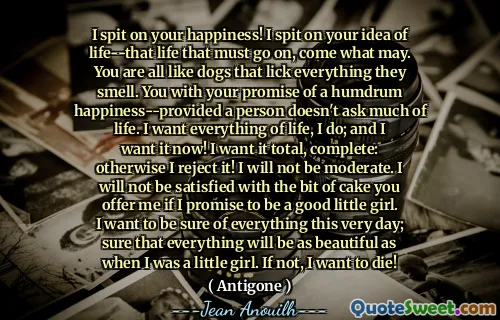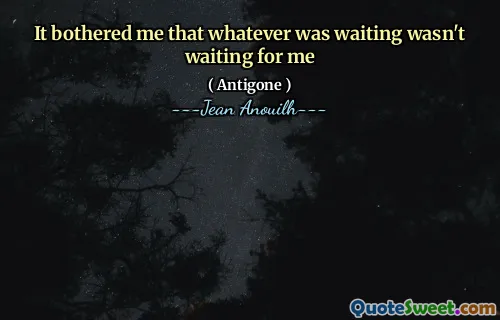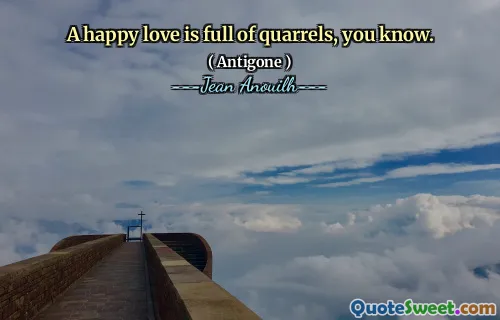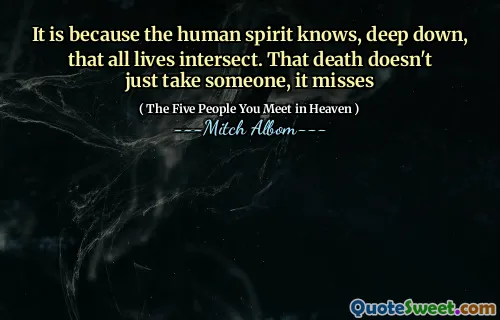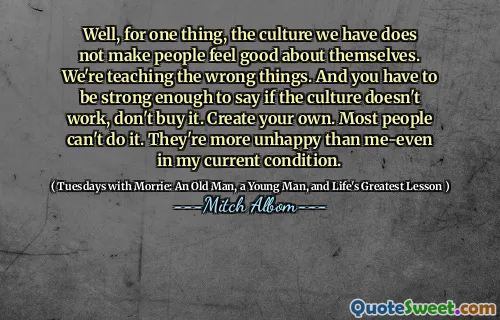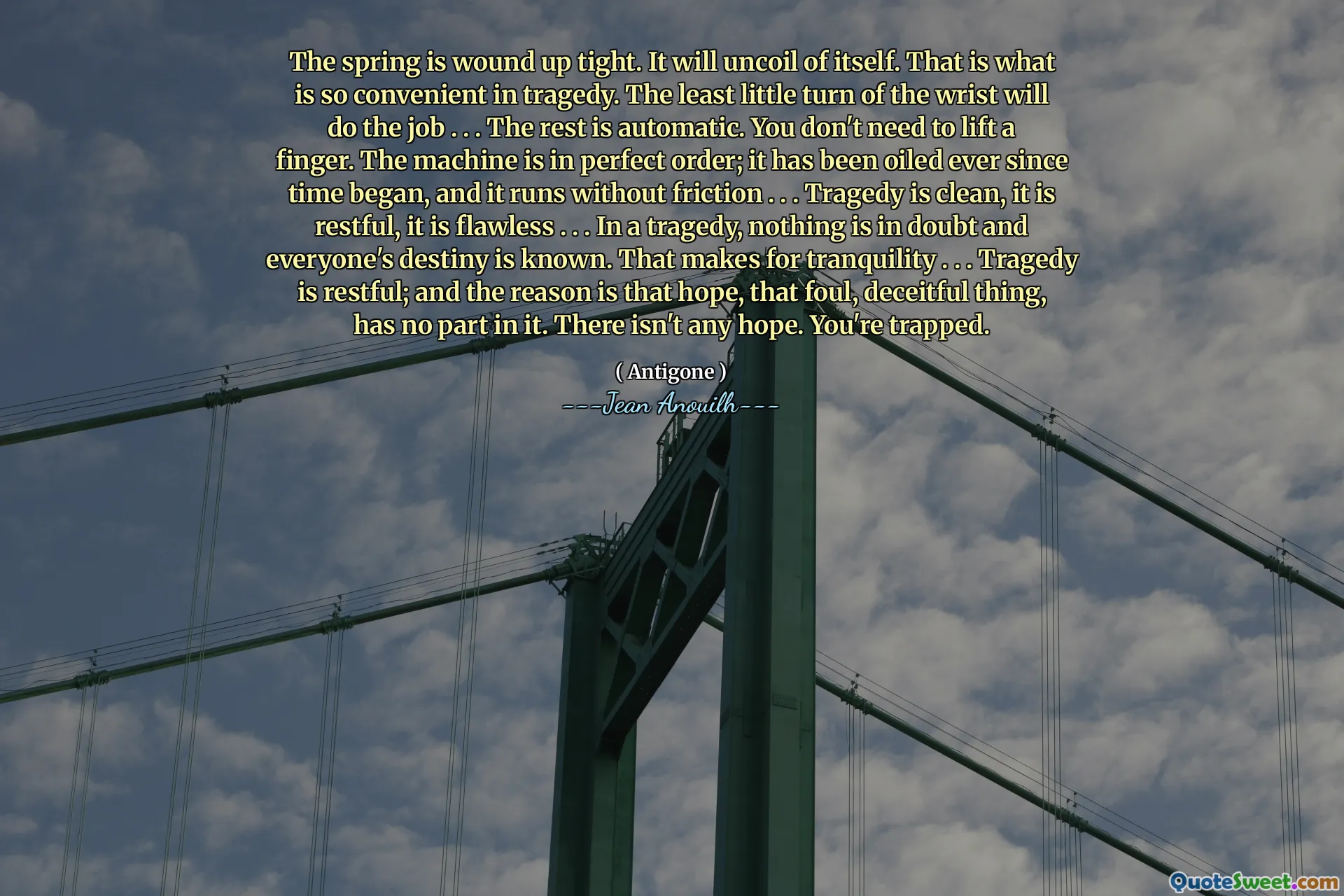
春天被紧紧抓住。它将自身无所适从。这就是悲剧如此方便的原因。腕部最少的转弯将完成这项工作。 。 。其余的是自动的。您不需要举起手指。机器的顺序完美;自从时间开始以来,它就一直被上油,并且没有摩擦。 。 。悲剧是干净的,宁静,它是完美无瑕的。 。 。在悲剧中,没有任何疑问,每个人的命运是众所周知的。这使得宁静。 。 。悲剧是宁静的;原因是那种希望,犯规,欺骗性的事情没有任何部分。没有希望。你被困住了。
(The spring is wound up tight. It will uncoil of itself. That is what is so convenient in tragedy. The least little turn of the wrist will do the job . . . The rest is automatic. You don't need to lift a finger. The machine is in perfect order; it has been oiled ever since time began, and it runs without friction . . . Tragedy is clean, it is restful, it is flawless . . . In a tragedy, nothing is in doubt and everyone's destiny is known. That makes for tranquility . . . Tragedy is restful; and the reason is that hope, that foul, deceitful thing, has no part in it. There isn't any hope. You're trapped.)
在让·阿努伊尔(Jean Anouilh)的“安提戈涅(Antigone)”的引用中,作者反思了悲剧的性质,将其描绘成自动运行的良好机器。这个想法是悲剧毫不费力地展现出来,仅仅触发了不可避免的结果。悲惨事件的可预测性带来了一种平静的感觉,因为一切都是预先确定的,消除了不确定性和怀疑。这种必然性为悲剧提供了一定的魅力,将其视为一种完美而和平的生存。
此外,Anouilh强调悲剧没有希望,他认为这是一种欺骗性的情感。缺乏希望会产生一种陷入困境,其中人物仅限于自己的命运而没有任何变化或赎回的可能性。这种鲜明的认识有助于悲剧的宁静,清洁的性质,因为它剥夺了通常与希望和野心有关的混乱。从这个角度来看,悲剧提供了一种奇特的宁静感,展现了一个命运的世界,而与不可避免的世界没有斗争。
